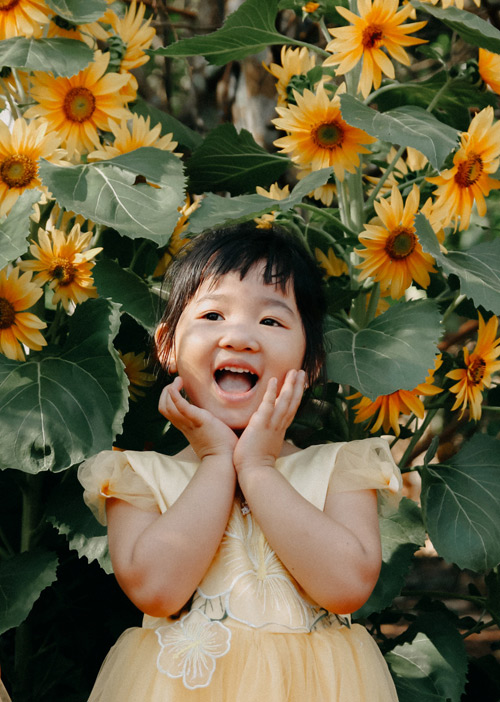摘下口罩后 日本人报班学习如何微笑 Many Japanese turn to smile instructors to learn how to smile again after COVID
中国日报网 2023-05-23 14:32

近日,日本政府解除了口罩令,但很多日本人发现,自己已经忘记了如何微笑。于是,他们求助于专家,通过微笑培训来重新展露自然笑容。

After wearing masks in public for three long years, many Japanese are signing up for smiling classes to learn how to smile again without looking awkward.
在公共场合戴了长达三年的口罩后,许多日本人都报了微笑培训班,学习如何看起来自然地微笑。
Smiling used to be a natural response, but apparently, three years of hiding behind a mask have left many Japanese unable to smile naturally. Some of them are now paying so-called smiling educators to teach them how to display their pearly whites again without looking awkward. They participate in specialized classes where they are taught how to stretch and flex various parts of their faces and even their neck muscles to smile properly and actually convey happiness without looking weird.
微笑原本是自然反应,但显然在戴了三年口罩后,许多日本人已经不会自然地微笑了。有些人现在付费给所谓的微笑培训师,让他们来教自己如何再次展露看上去自然的笑颜。他们参加专业课程来学习如何伸展和绷紧脸部的不同部位甚至颈部肌肉来绽放自然的笑容,看上去快乐又不会显得奇怪。
"A smile is only a smile if it’s conveyed,” Keiko Kawano, a radio personality-turned-entrepreneur, told The Japan Times. “Even if you’re thinking about smiling or that you’re happy, if you have no expression, it won’t reach the audience.”
曾是广播名人的企业家川野惠子告诉《日本时报》:“笑容只有表现在脸上才能算是笑容。即使你心里想微笑或你很快乐,如果你面无表情,观众也不会知道你在笑。”
Kawano said that she has taught smiling classes to around 4,000 people so far and has also helped train around 700 certified “smile specialists” since she started her work in 2017. However, demand for her services has skyrocketed recently after people started giving up the medical masks they have been wearing for the last 3 years.
川野说,迄今为止她已经给约4000人上了微笑培训课,而且自从2017年开始从事微笑培训以来,已经帮助培训了约700名获得认证的“微笑专家”。然而,自从人们开始摘下戴了三年的医用口罩后,最近她的这一服务需求量暴增。
"I’ve heard from people who say that even if they’re able to remove their masks, they don’t want to show the bottom half of their faces, or that they don’t know how to smile anymore,” smile trainer Miho Kitano said. “Some say that they see more wrinkles around their eyes after using them more to smile, or they feel like their face is drooping because they haven’t been using it as much as before.”
微笑培训师北野美穗说:“我听人们说,他们即使能摘下口罩,也不愿意露出自己的下半张脸,因为他们已经不知道怎么笑了。有些人说,他们在笑的时候会更多地用到眼部肌肉,结果在眼角看见了更多皱纹,还有人说,因为他们不像以前那样经常笑,所以觉得自己的脸部肌肉开始下垂。”
Smiling instructors like Kitano claim that exercising one’s smile is just like training other parts of the body. It’s all about the muscles, so exercising the expressive facial muscles is the most important thing.
北野和其他微笑培训师表示,训练如何微笑就和训练身体其他部位一样。微笑就是肌肉运动,因此训练富于表现力的面部肌肉是最重要的。
A standard smiling education class begins with a stretching session, after which participants are asked to pick up small handheld mirrors and observe themselves as they follow the instructions of a trainer who teaches them how to flex their facial muscles to convey the warmest and brightest expression of happiness possible.
一节标准的微笑培训课是以伸展运动开始的,然后培训师会让参与者拿起一把手持小镜子一边观察自己,一边按照培训师的指令来伸展面部肌肉,尽可能呈现出最温暖最明亮的快乐笑容。
Interestingly, instructional smiling classes have been a part of Japanese culture for several decades, because of the people’s notorious difficulty to convey their feelings through facial expressions, but they’ve once again risen in popularity after the Covid-19 pandemic restrictions were lifted.
有趣的是,微笑培训课作为日本文化的一部分已经有几十年的历史了,因为众所周知日本人难以通过面部表情来传达自己的感受。在新冠疫情限制措施解除后,微笑培训课又再次流行了起来。
英文来源:Oddity Central
翻译&编辑:丹妮

















 英语点津微信
英语点津微信 双语小程序
双语小程序